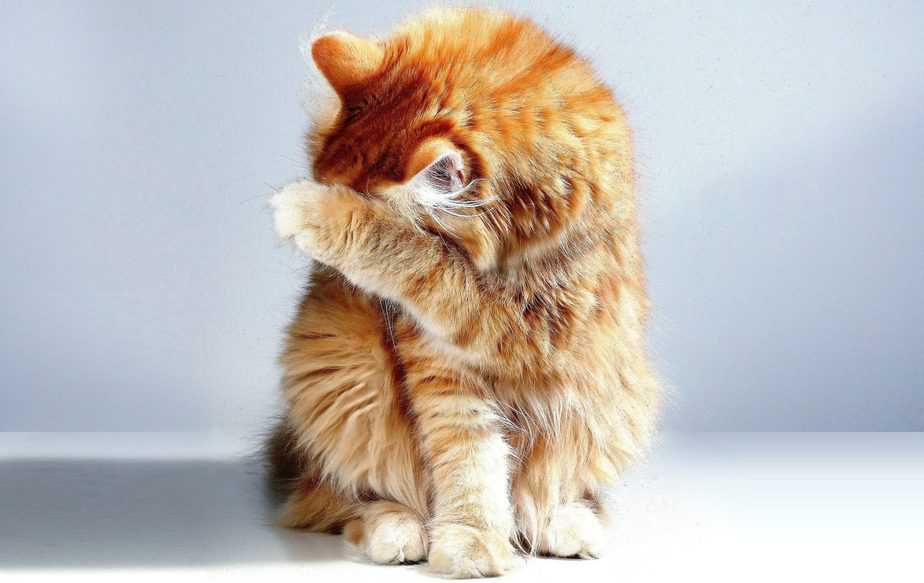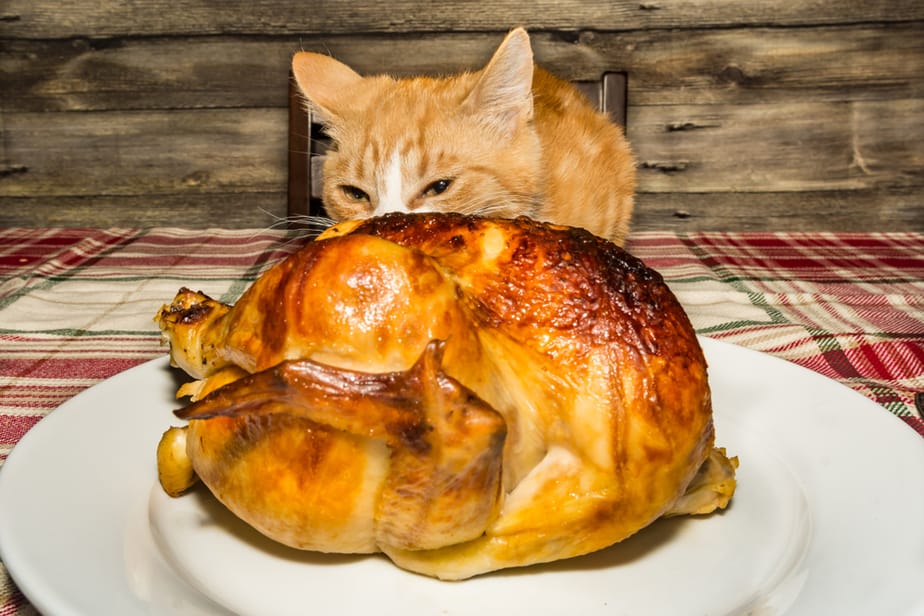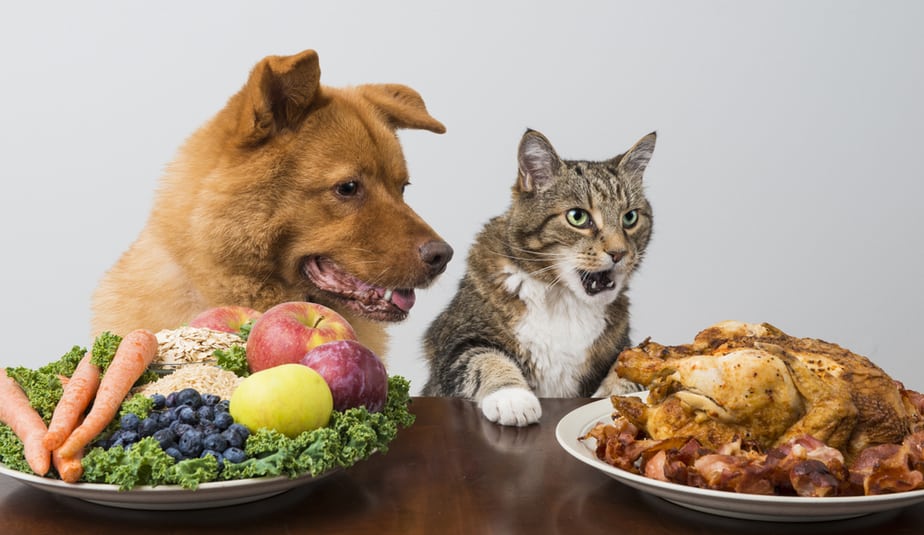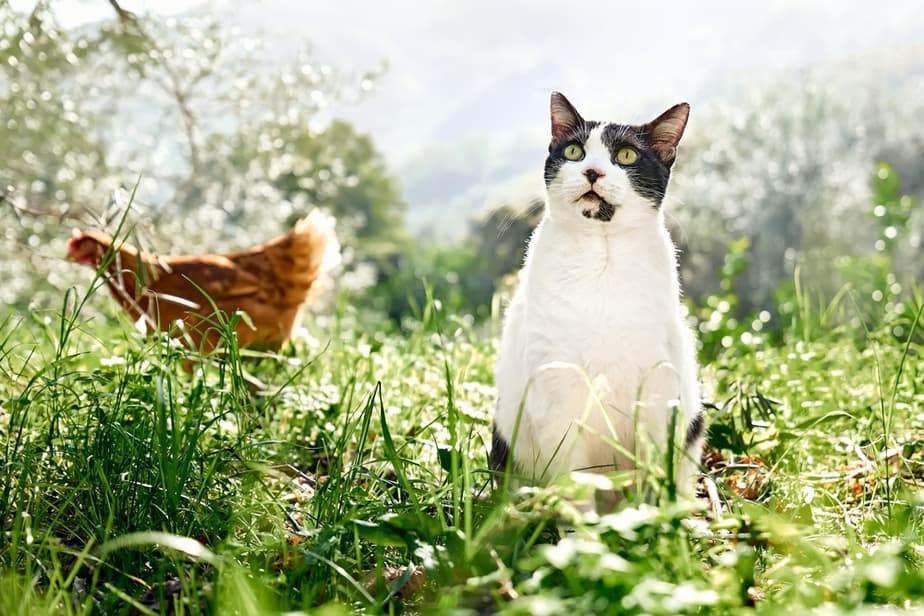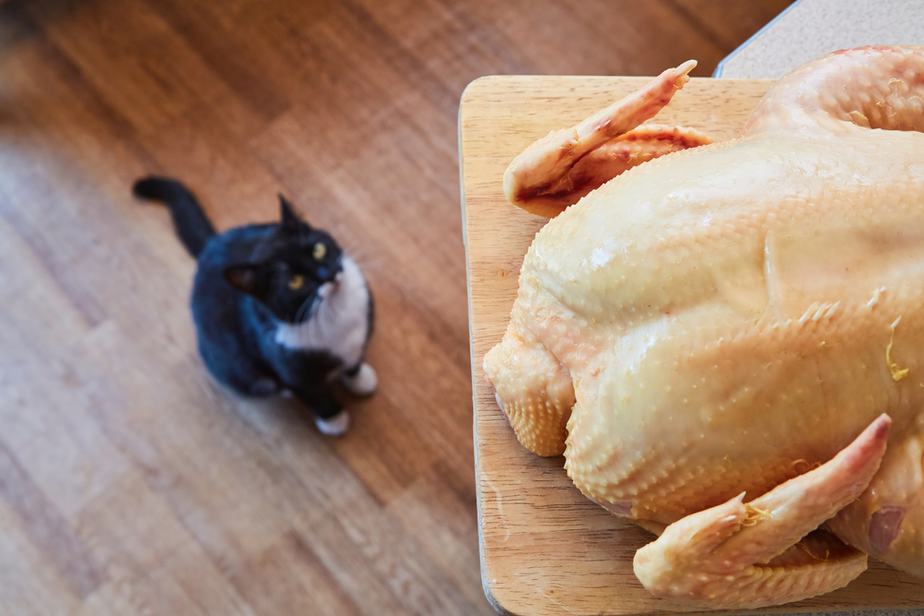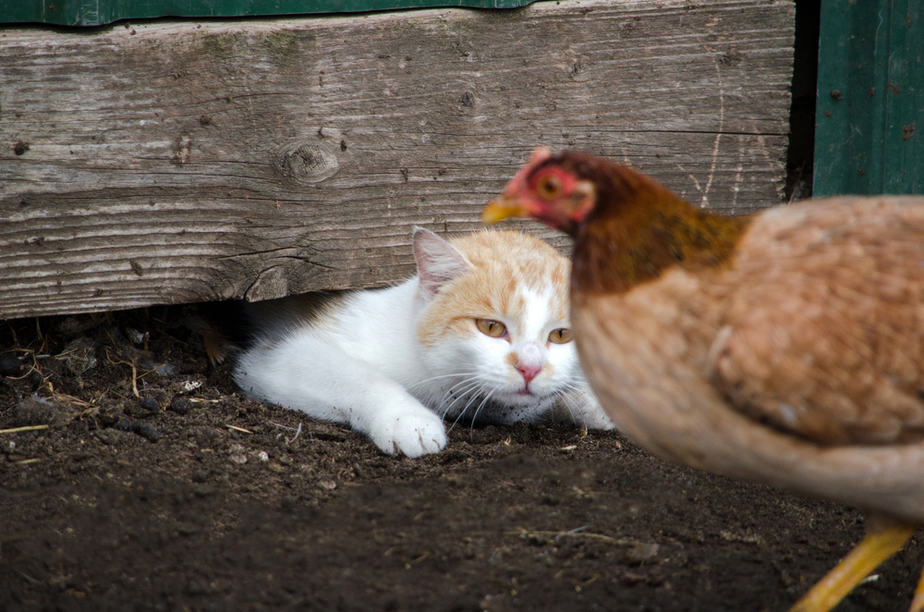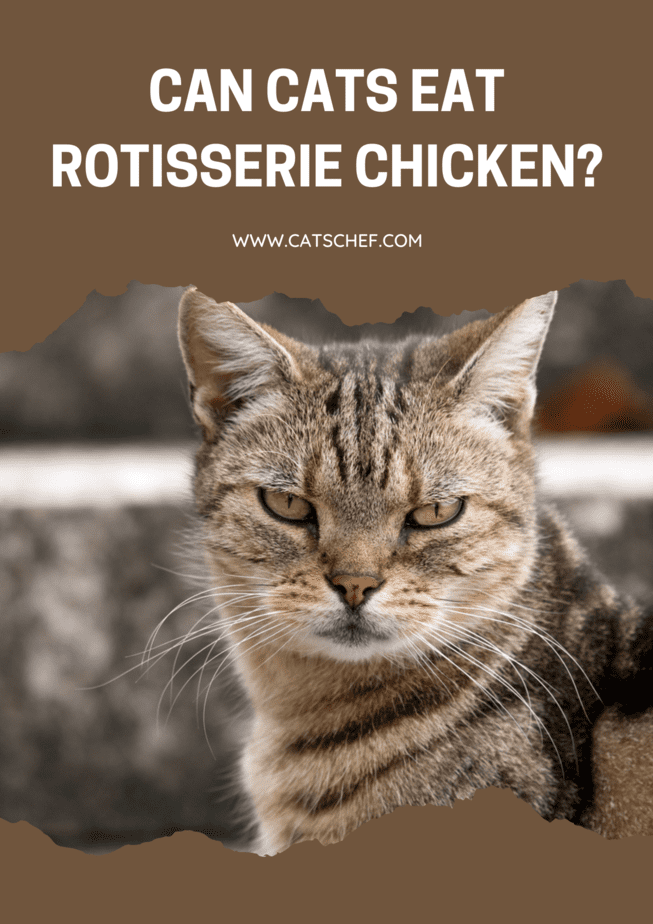📖 Table of Content:
Let me guess, the mouth-watering smell of seasoned chicken makes your four-legged friend go bonkers? ”Human, I can’t wait for you to take that heavenly feast out of the oven and share it with me! You are going to share it with me, right!?” Umm, can cats eat rotisserie chicken?
If you’re someone who doesn’t like chicken, don’t talk to me or my cat ever again! Let’s be honest, this flightless bird can be found in pretty much every cuisine in the world. Chicken Stroganoff, Mughali chicken, Tandoori chicken… There are so many options to choose from!
And your curious creature makes goo-goo eyes at all of them. She doesn’t care which part of the world your recipe comes from, she just wants you to name her the professional food taster of your household (or her household, whichever you prefer).
Let’s not forget the most important fact. Cats are carnivores and they require heaps of meat and animal protein in their regular diet. Your precious purrincess needs that chicken more than you do! She’s still growing… Or at least that’s the excuse she gives you when she’s being a pain in the neck!
All jokes aside, if you’re wondering whether cats can eat rotisserie chicken, you’ve come to the right place. While it’s true that cats thrive on a meat-based diet, rotisserie chicken might not be the best choice for your feline friend. So, let’s dive into the reasons why.
What’s in rotisserie chicken?
First things first, rotisserie chicken is a popular dish in which the chicken is cooked on a rotisserie that rotates inside a hot oven to ensure all sides are crisp and fully cooked. It can be prepared at home on a grill, in a specially designed rotisserie oven, or in a regular cooking oven we all have at home.
And the best part of rotisserie chicken? Crispy on the outside, tender on the inside – the meat is cooked evenly and slowly until it’s absolutely perfect. It’s considered one of the healthier ways of preparing chicken (for humans) as it’s not fried in a ridiculous amount of oil.
So, what makes this succulent meat unsuitable for your feline friend? Could it be that cats can eat rotisserie chicken, after all? Don’t even think about it! Rotisserie chicken contains a bunch of ingredients that might harm your cat in the long run.
While the chicken in itself isn’t toxic to cats (quite on the contrary), you shouldn’t include this particular chicken dish in your cat’s regular diet. Rotisserie chicken is typically smothered in oil, salt, onion powder, garlic powder, smoked paprika, as well as many other herbs and spices.
Unfortunately, most herbs and spices aren’t recommended for feline consumption. Basil, cilantro, dill rosemary, and thyme are pretty much the only culinary herbs you’re allowed to share with your precious pet. Most rotisserie chicken herbs and spices might harm your cat in some way or the other.
So, can cats eat rotisserie chicken?
It’s the main reason why you looked up this article, right? Can cats eat rotisserie chicken? While a bite or two isn’t going to cause any immediate harm to your cat, you shouldn’t add this delectable dish to her regular diet. Cats can’t eat rotisserie chicken safely.
And it’s not even the chicken’s fault! Chicken is perfectly safe for feline consumption. Not only that, but your four-legged friend will receive heaps of nutritional benefits from unseasoned and properly cooked chicken.
It’s lean, low in calories, and packed with protein. It can provide your cat with bursts of energy which is incredible for those neverending play fights. And it’s a great source of vitamins and minerals that can boost your cat’s immune system. Did I mention it’s also rich in Omega-6?!
On the other hand, rotisserie chicken is a big no-no in the feline world. All those herbs and spices might lead to various digestive issues and leave your cat feeling drowsy and lethargic. Most commercially available rotisserie chicken isn’t even close to being safe for your cat, but…
If your precious purrincess happens to be a huge fan of the spinning chicken, you might want to consider making it from scratch. You can control the recipe and make sure you don’t add anything that might cause harm to your cat. Give it a try and let me know how it goes!
In the meantime, let’s break down all the reasons why these ingredients make rotisserie chicken so unfavorable in the feline world.
Reasons why you shouldn’t feed rotisserie chicken to your cat
”But, my cat adores everything I make! She hasn’t had any negative reactions to herbs and spices, why would she have them now? Are you absolutely positive cats can’t eat rotisserie chicken!?”
Here’s the thing, you can never be too careful when it comes to your curious creature’s safety. Your cat might have eaten a couple of bites of seasoned food in the past without any problems, but that doesn’t mean she can eat an entire rotisserie chicken with no repercussions.
1. Rotisserie chicken contains a bunch of oil
You shouldn’t even have to google ”Can cats eat rotisserie chicken?” when you think about the amount of oil this dish typically contains. Most marinades are made with regular vegetable oil and lots of herbs and spices. While vegetable oil isn’t toxic to cats, it might lead to some digestive issues.
Most vets suggest adding one teaspoon of olive oil to your cat’s regular food two or three times a week. Anything more than that might send your cat running to the litterbox. So, if she gets her paws on your rotisserie chicken she might experience bloating, abdominal pain, and diarrhea.
When it comes to human food, the preparation process determines whether you can share it with your favorite furry friend. Let’s put it this way: if you’re planning on inviting your cat to the weekly cookout, you might want to scratch the vegetable oil off your grocery list.
2. Rotisserie chicken contains too much salt
While you can easily make rotisserie chicken at home, most people buy it from different food places, grocery stores, or even street vendors. If you’ve ever bought a rotisserie chicken, you might have noticed it’s a lot saltier than your regular roasted chicken.
That’s because most commercially available rotisserie chicken gets injected with a special saline solution to add some extra flavor. As a result, this particular type of chicken contains around nine times more sodium than your regular roasted chicken. Insane, isn’t it!?
And do you know how much sodium your four-legged friend is allowed to consume daily? Less than 40 milligrams! If she consumes any amount of rotisserie chicken she might experience symptoms such as vomiting, diarrhea, excessive thirst or urination, decreased appetite, lethargy, and incoordination.
3. Rotisserie chicken contains too many harmful herbs and spices
Did you know that humans have around 10000 taste buds, while cats only have 470? This genetic defect is responsible for your cat’s inability to taste sweet or spicy things. Your cat is a carnivore which means she thrives on fresh meat and animal protein.
Since fresh meat isn’t sweet or spicy, there’s no reason why she would have to register those flavors on her tongue. She gets all the pain and none of the pleasure from eating spicy foods! Too much spice could cause irritations in her mouth and lead to various digestive issues!
Not only that, but most herbs and spices are toxic to cats. Chives, onion, garlic, scallions, oregano, marjoram, mint, parsley… All these herbs could lead to various adverse reactions. Your cat might experience irritation of the skin, gums, or eyes, twitching, drooling, or even vomiting.
4. Rotisserie chicken contains too many calories
While you might think your chunky cat looks adorable with all that extra fluff, feline obesity isn’t something that should be taken lightly. If you’re still wondering ”Can cats eat rotisserie chicken?”, you might want to look into the number of calories this dish contains.
An entire rotisserie chicken contains around 1100 calories. Even though your mischievous monster isn’t likely to eat an entire chicken in one sitting, it’s still a waste of calories. Once your cat gains weight by eating unhealthy foods, it’s incredibly difficult to get her to eat anything else.
It’s much more efficient to prevent her from eating calorically dense food like rotisserie chicken. There are healthier alternatives available on the market, and you can always make something from scratch. Your feline friend will enjoy it either way!
5. Cats can’t eat rotisserie chicken safely
Rotisserie chicken carries too many risks and pretty much no benefits! If your furry friend happens to be a huge fan of chicken, it’s much better to leave it as plain as possible. That doesn’t mean you should leave it raw! Never feed your cat raw chicken!
Boiled, unseasoned chicken ensures that your feline friend receives all the essential nutrients. It contains protein, selenium, niacin, phosphorus, and vitamins B6 and B12. It helps maintain muscles, assists with repairing and building tissue, and contributes to fertility and the immune system.
It’s safe to say your feline friend should stick to basics. While rotisserie chicken might be an excellent choice for you, your cat requires special treatment. Unless you’re willing to make rotisserie chicken with no oil, salt, and other seasonings, boiled chicken is the way to go!
Can cats eat rotisserie chicken? Is there a better option?
While it’s true that cats can’t eat rotisserie chicken, it’s not the end of the world. Chicken is one of the most versatile meats in the culinary world. There are thousands of ways in which you can prepare it, and hundreds of them are cat-friendly.
Chicken breasts, chicken wings, chicken drumsticks, chicken gizzards… Every single part of this flightless bird is safe for feline consumption as long as you cook it properly. You shouldn’t use too much oil and salt, and you should steer clear of any harmful herbs and seasoning.
It’s also important to mention that you shouldn’t feed cooked chicken bones to your cat! They’re simply too brittle and they might break apart in your cat’s mouth. Not only can these shards cut the inside of your cat’s mouth, but they can also become lodged in her throat.
You should always consult with your vet before making any significant changes to your cat’s diet. If he gives it his stamp of approval, chicken might become a staple in your cat’s regular diet. It’s simply paw-licking delicious!
